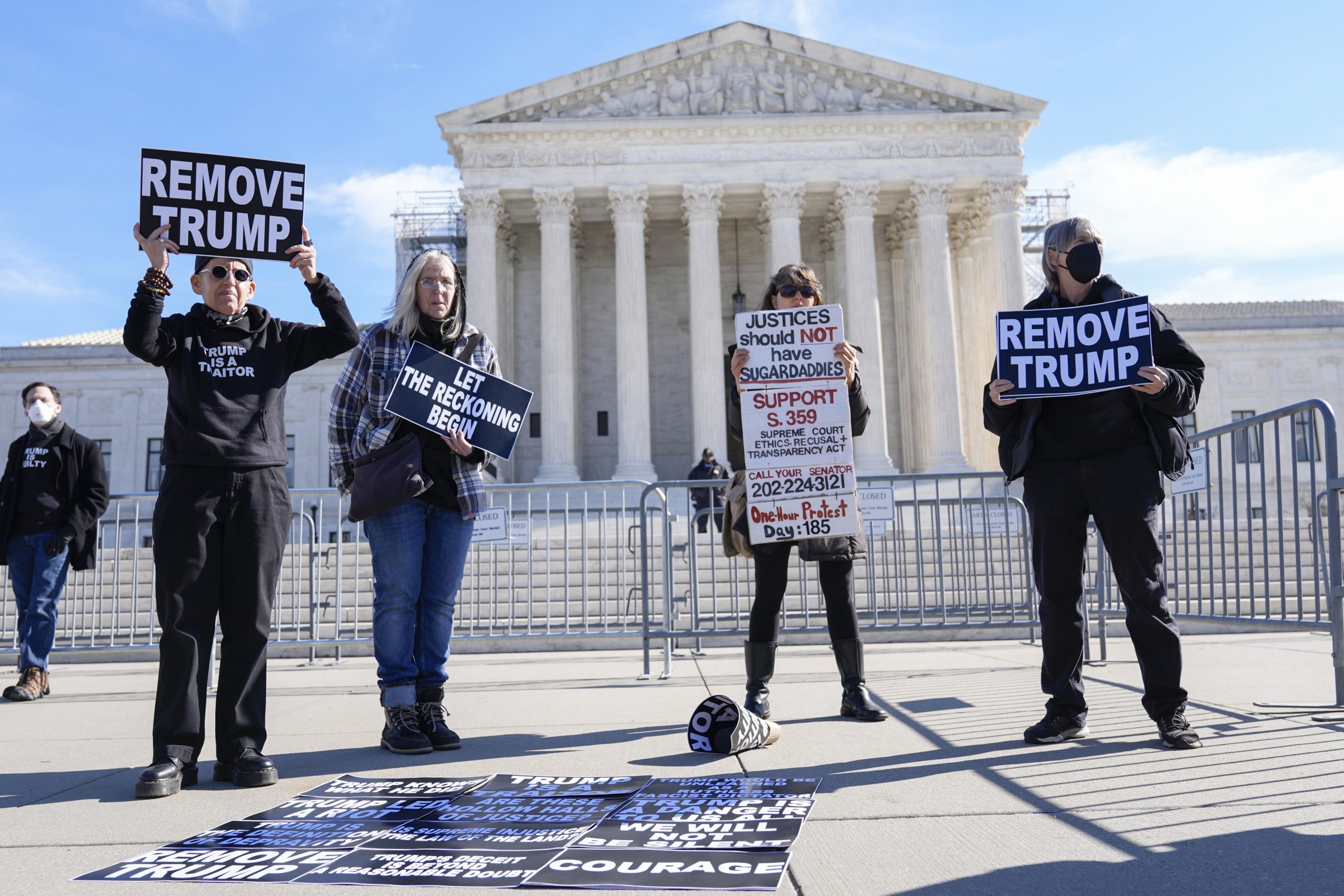
The start of the United States’ presidential primary season is set to coincide with the Supreme Court’s involvement in several high-profile cases that could have implications for the election results.
However, analysts are pointing out the delicate position in which the court finds itself. The court may be forced to grapple with the issue of its impartiality due to the legal predicament facing Republican front-runner and former President Donald Trump. It is worth noting that Trump played a significant role in shaping the court’s current conservative supermajority by appointing three justices during his tenure.
One of the cases recently brought before the Supreme Court revolves around Trump’s broad claims of immunity for his actions while serving as president.
Special counsel Jack Smith and federal prosecutors have alleged that Trump conspired to overturn the results of the 2020 election in his final days in office. In response, Trump’s legal team has urged the court to dismiss the charges by arguing that, as president, he was shielded from criminal prosecution.
The court’s resolution of the immunity issue will likely determine whether Trump will face trial for these charges, potentially sidelining him for a significant portion of the election campaign.
Even if Trump’s claims of immunity are rejected, the Supreme Court will have another opportunity to impact his federal election-subversion case. This chance will come when the court reviews a challenge to the application of a federal obstruction statute to the defendants involved in the events of January 6. The crime of “obstruction of an official proceeding,” with a maximum jail term of 20 years, has been the primary charge against over 300 individuals implicated in the Capitol breach that day. It also forms the basis for four of Trump’s felony charges in Washington, D.C.
An appellate court recently heard arguments in this case, ruling against Trump and prompting him to turn to the Supreme Court for a subsequent appeal.
In another case, the Supreme Court has been asked to intervene in a dispute regarding whether states have the authority to remove Trump’s name from their primary ballots.
The states of Colorado and Maine argue that Trump’s actions on January 6, 2021, when his supporters stormed the U.S. Capitol to disrupt the certification of the 2020 election results, disqualify him from appearing on their ballots. They base their argument on an excerpt from the 14th Amendment of the U.S. Constitution, which prohibits individuals who engage in insurrection after swearing an oath of allegiance from holding public office.
Trump addressed the rioters preceding the attack on the Capitol in 2021, restating false allegations of election theft and urging the crowd to “fight fiercely.”
Trump’s legal team contends that it is uncertain whether the law is applicable to the president’s position and they have portrayed Trump’s statements as falling within the boundaries of free speech.
The case was heard in court on February 8, just before the Maine and Colorado primaries on March 5. Judging by the questions and remarks made, it is evident that the judges are highly doubtful about removing Trump from the election ballots. Their ruling will ultimately apply to all U.S. States.
Additionally, the Supreme Court may determine the extent of Trump’s speech regarding the indictments.
Assuming Trump’s trial and charges proceed as planned, it is almost certain that the Supreme Court will eventually be asked whether Trump can be severely restricted in discussing the case while campaigning for president.
U.S. District Judge Tanya Chutkan imposed a gag order on Trump in October, reasoning that his attacks on witnesses and prosecutors endangered the integrity of the case. Trump argues that the restrictions are overly broad and violate his First Amendment rights, especially as a political candidate.
Last month, a three-judge panel of the D.C. Circuit Court of Appeals largely upheld the gag order, and Trump has since requested a rehearing before the entire appeals court. Regardless of the outcome, the side that loses is likely to appeal the matter to the Supreme Court.
While Trump seeks legal immunity from prosecution in Washington, he is also seeking immunity from civil lawsuits related to his actions as president, which will likely lead him to federal courts and, eventually, the Supreme Court. In Washington, a D.C. Circuit panel, including one of Trump’s appointees, determined that Trump cannot be shielded from lawsuits alleging that he incited the violent mob at the Capitol on January 6. Similarly, in New York, the 2nd Circuit Court of Appeals rejected his attempt to claim immunity in a defamation lawsuit filed by writer E. Jean Carroll.
The issue of judicial bias is becoming a significant concern for the Supreme Court. Traditionally, the court has been perceived as an impartial institution that is accountable only to the law. However, its credibility has been questioned as it confronts allegations of bias.
In a recent survey conducted by the Pew Research Center in 2023, public opinion of the Supreme Court reached a historic low. Only 44 percent of Americans viewed the court favorably, marking the first time since 1987 that the majority expressed disapproval.
At the heart of the recent controversies surrounding the court, lies Clarence Thomas, a conservative justice who has been urged to abstain from cases concerning Trump.
According to media sources, Clarence Thomas’ wife, activist Ginni Thomas, has allegedly advocated for the rejection of the 2020 election outcome, which indicated Trump’s defeat to Democrat Joe Biden. These reports also imply that Thomas may stand to gain financially if Trump secures a second term.